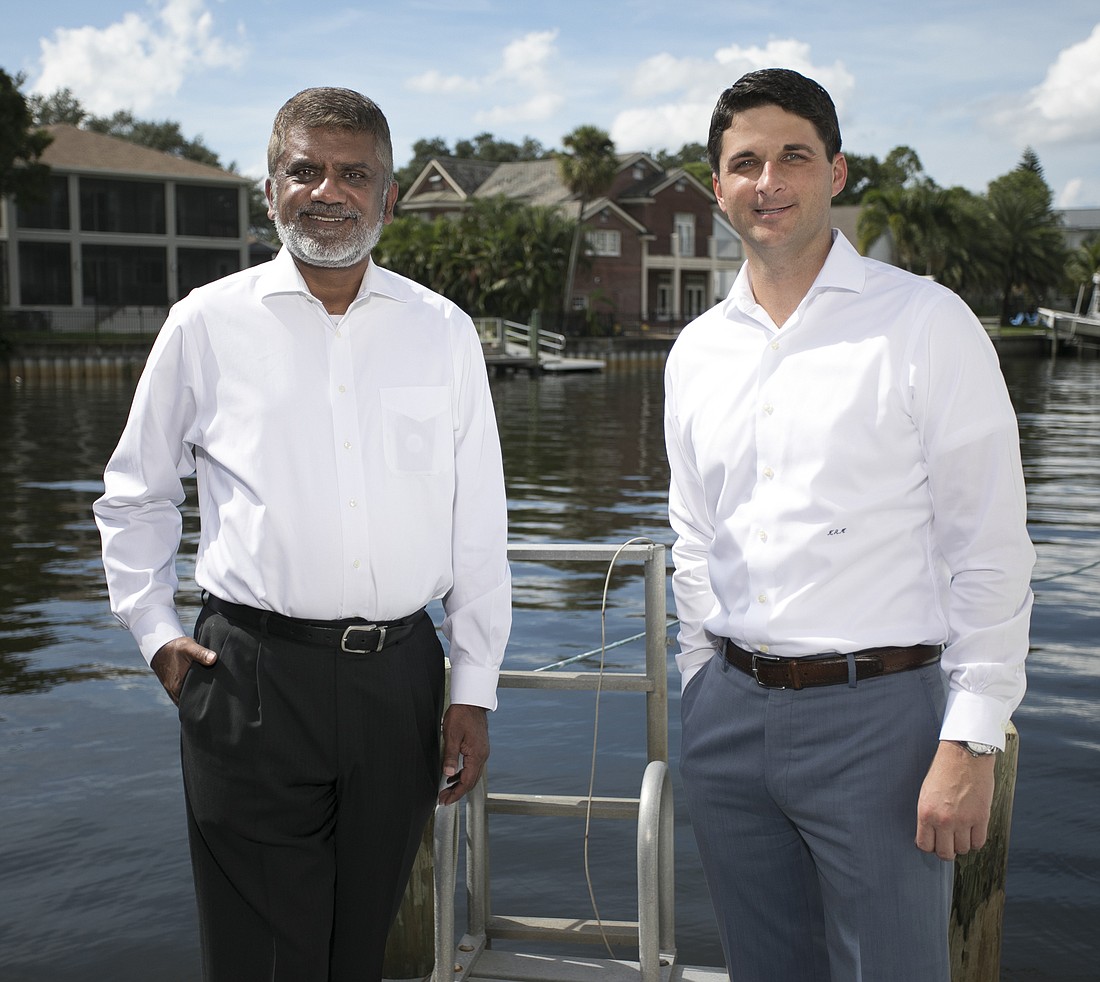- February 6, 2026
-
-
Loading

Loading

With the benefit of hindsight, 2016 wasn’t the best time to get into the flood insurance business in Florida. The following year brought Hurricane Irma, and the year after that was Hurricane Michael.
But for TypTap, a division of Tampa-based HCI Group Inc. the active hurricane seasons of the past few years have only confirmed the strength of its data-centric business model. Led by CEO Paresh Patel, 57, TypTap hasn’t had to raise its rates and had $32 million of premiums through August, with projections to reach $50 million by the end of 2019 and a goal of $100 million in 2020. HCI did $231.3 million in revenue in 2018.
“What we're doing is the way you will be buying insurance in the not-too-distant future.” Paresh Patel, CEO of TypTap
Thanks to a trove of property-specific data compiled and organized over a seven-year period by sister company Exzeo USA Inc., TypTap, which is headquartered in Ocala and has about 50 employees, claims it can provide flood insurance quotes in as little as two minutes. It’s a tactic that shifts the burden of providing information from the customer to the company, while also making sure the most at-risk properties are covered.
“All the stuff behind the scenes is very complex, which makes the customer experience very simple,” says Patel, also HCI Group’s managing shareholder. “It’s a lot like how with Google, when you search for something, they don’t go in and search when you actually type in the search words. They’ve already searched everything beforehand and have it all sorted and stored. They just give you the answer.”
But with a gargantuan competitor — the federal government’s National Flood Insurance Program — dominating the market, along with an increase in insurance companies offering private flood insurance policies, TypTap faces some potential hurdles to continue making inroads with property owners. Speedy quotes are nice, but they don’t necessarily translate into sales and revenue.
“People like doing things the way they’ve always done it,” Patel admits. “The first day the iPhone came out, the whole country didn’t go out and buy one. But once you held an iPhone in your hand, you had no doubt that your flip phone was going away. What we're doing is the way you will be buying insurance in the not-too-distant future.”
TypTap, via HCI Group, has some market advantages over its competitors, Patel says. A big one is the way it deals with risk.
“A lot of the people who have gotten into the flood insurance business do so as a managing general agent, so they don’t retain any of the risk,” Patel says. “They sell the policy and then send it off to someone else to hold the liability, like a mortgage broker. We actually retain the risk, and that gives us a very different perspective.”
That perspective informs the way TypTap set up its business model. Patel says the company is aware it’s going to have to pay out claims, and it builds that knowledge into its financial forecasts and projections. “That’s the business we’re in,” he says, “the business of paying claims.”
But the vast storehouse of data TypTap has accumulated about residential properties in Florida and six other states — South Carolina, New Jersey, Pennsylvania, Maryland, Texas and California — where it operates gives it the power to charge rates that are sustainable for both the company and its customers, who don’t have to worry about wild fluctuations in premiums. TypTap knows millions of homes down to the tiniest details, not just elevation, and that allows it to develop advanced pricing algorithms that deliver quotes with both speed and precision. End users appreciate that, and so do agents, who can run their businesses more efficiently.
“The reason we got into this is because we have a technology edge over everybody else,” Patel says. “Our underlying technology lets us figure out whether the risk is adequately priced because if you get it right, why would you need to change the price?”
The strategy has worked. Since TypTap launched in early 2016, Florida has sustained direct hits from hurricanes Hermine, Matthew, Irma and Michael that led to catastrophic flooding in some parts of the state. And in Texas, Hurricane Harvey in 2017 turned out to be one of the most notorious storms in history in flooding. Yet TypTap has not even attempted to file for permission to raise its flood insurance rates for homeowners.
“We’ve had claims, and we’ve paid the claims,” Patel says. “At the end of it, we’re still here.”